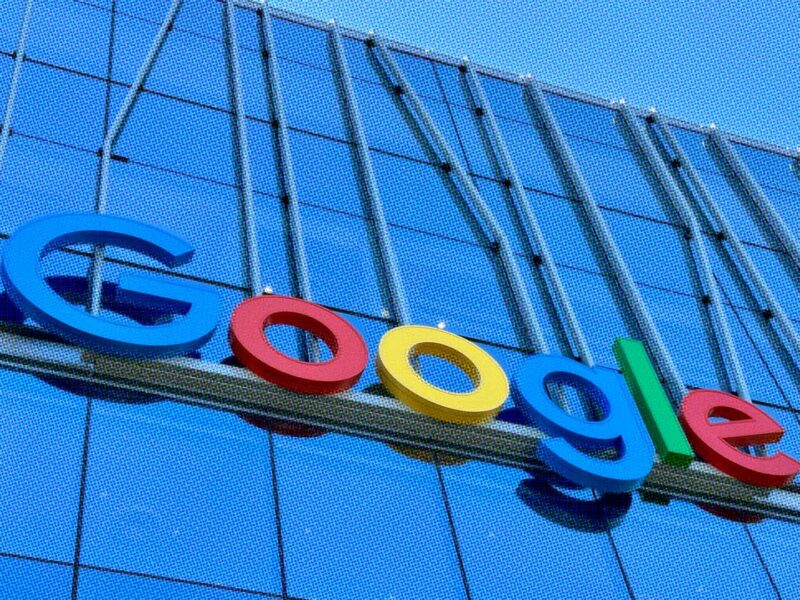
Google's Core Update from March 2025 is complete – with significant effects on forums and community pages. Read our summary to find out what has changed and what SEOs should be aware of now. ... Continue reading
| 02 min |


| 10.04.2025 | 07 min |
The claim that search engine optimization (SEO) is dead is a recurring theme in the digital marketing world. Since the early days of the internet, the end of SEO has been repeatedly predicted, often in connection with significant changes in the way search engines work or the emergence of new technologies. This analysis examines the history of these pronouncements of death and sheds light on the reasons for their occurrence, as well as the continued resilience and evolution of SEO.
The first notable pronouncement of the end of search came as early as November 1997 from Richard Hoy. Long before Google became the dominant player in the search engine market, Hoy expressed his belief in an online discussion group that search engines were a dead-end technology and that worrying about how to rank a website was a waste of time. He advised his clients to create good meta tags, submit their site, and then forget about it.
Hoy’s skepticism about search engines in 1997 was based on several observations. He noted an inverse relationship between the level of website promotion and the percentage of traffic coming from search engines. He also criticized the dynamic nature of search tools, whose content changed by the second, as well as the high proportion of misleading information and the complexity of the tools, which required a deep understanding of Boolean logic. These early concerns reflected the immaturity of search technology at the time and the difficulties of finding relevant and reliable information on the fledgling World Wide Web.
The next significant pronouncement of the death of SEO came in 2005 from entrepreneur Jeremy “ShoeMoney” Schoemaker. In a widely-publicized blog post, he declared the end of SEO, arguing that search engines were improving so rapidly that short-term top rankings for certain keywords would inevitably be corrected by Google or Yahoo.
Unlike Hoy’s early skepticism about the fundamental technology of search, Schoemaker’s pessimism stemmed from the increasing sophistication of search engines and the fear that manipulative SEO tactics would no longer be effective. His post quickly gained popularity, especially in the context of several Google updates at the time that sent the SEO industry into turmoil. Around 2005, there were claims that traditional SEO techniques were coming to an end, that SEO was dying out with Web 1.0 and that search engine optimized copywriting seemed to be irrelevant. Schoemaker’s statement pointed to a significant shift in best practices and highlighted the need for SEO experts to adapt their strategies.
Over the years, significant algorithm updates from Google have repeatedly triggered new waves of “SEO is dead” prophecies. These updates were often aimed at combating manipulative practices and improving the quality of search results for users.
The Florida and Cassandra updates in 2003 and 2004 were early examples of Google’s efforts to combat manipulative SEO tactics. The Florida update at the end of 2003 aimed to improve the quality of search results by targeting websites that used spammy SEO practices such as keyword stuffing and hidden text. This update had a massive impact on search rankings and resulted in significant changes to search results. It particularly targeted keyword stuffing and commercial manipulation. The Cassandra update in April 2003 focused on combating link spam, including reciprocal links between affiliated websites, hidden text and hidden links.

These early updates marked a turning point when Google began actively cracking down on manipulative SEO tactics. This signaled that SEO needed to focus on adding real value rather than exploiting system weaknesses. SEO promoters, accustomed to these methods, saw the end of the “Wild West” era of SEO.
The Panda (2011) and Penguin (2012) updates reinforced the importance of high-quality content and ethical link building practices. Panda penalized low-quality, spammy content, while Penguin reduced the influence of low-quality and manipulative link schemes. The Panda update led to some of the earliest cries of “SEO is dead” and forced sites to pursue white hat SEO instead of black hat SEO. These updates led to more “SEO is dead” pronouncements from those who had been relying on now-penalized tactics.
Subsequent significant updates such as Hummingbird (2013), RankBrain (2015) and BERT (2019) demonstrated Google’s continued commitment to understanding users’ search intent and delivering relevant results. Hummingbird focused on user intent rather than just keywords. RankBrain, an AI algorithm, made it more difficult to manipulate rankings using traditional signals. BERT further improved Google’s understanding of natural language. The introduction of RankBrain caused a lot of panic in the SEO community, as the old ways no longer worked. These developments required SEO experts to focus more on creating valuable content that directly addresses the needs of users, rather than just optimizing for keywords.
This table shows how significant changes in Google algorithms often led to discussions about the end of SEO because they challenged established practices.
| Year | Update name | Main focus/impact | Link to “SEO is dead” narrative (short) |
| 2003 | Florida | Tackled keyword stuffing and commercial manipulation | Led to a feeling that manipulative tactics no longer worked |
| 2003 | Cassandra | Fighting link spam and hidden elements | Hit common SEO practices and led to fears about the end of SEO as we know it |
| 2011 | Panda | Penalization of low-quality, spammy content | Led to early calls for the end of SEO as the focus shifted to quality |
| 2012 | Penguin | Reduction in the influence of low-quality and manipulative links | Reinforced the idea that “black hat” SEO was dead |
| 2013 | Hummingbird | Focus on user intent and semantic search | Required a deeper understanding of user needs beyond simple keywords |
| 2015 | RankBrain | Use of AI to better process search queries and personalize results | Made ranking manipulation through traditional signals more difficult and caused panic |
| 2019 | BERT | Improvement in understanding of natural language | Required an even greater focus on high-quality, user-oriented content |
New technologies and search features have also been interpreted as threats to traditional SEO.
The introduction of featured snippets (around 2014) and the rise of zero-click searches led to fears that fewer users would click on organic search results. Rand Fishkin’s research in 2020 highlighted the increasing proportion of zero-click searches. Although featured snippets and zero-click searches have changed the dynamics of the search results page, they have not eliminated the need for SEO. Instead, they have created new optimization opportunities, such as targeting featured snippet placements.
Predictions that the rise of voice assistants would spell the end of traditional keyword-based SEO have not materialized. While voice search introduced new challenges, such as optimizing for long-tail conversational queries, it has not made traditional SEO obsolete. Voice search has expanded the scope of SEO to include natural language queries, but the fundamental principles of providing relevant and high-quality content remain crucial.
The latest wave of “SEO is dead” claims is fueled by the rise of AI tools like ChatGPT and Google’s Search Generative Experience (SGE). There is concern that AI-generated results could replace traditional organic listings. Statistics from Ahrefs show that SEO has died 4,852 times since January 2016. AI is undoubtedly changing the way people search for answers online. The volatility of search engine result pages (SERPs) and the changes in how Google approaches search intent, including the shift towards product pages for certain keyword-related searches, are also indicators of this development. Although AI is fundamentally changing the search landscape, it is more likely to evolve SEO than to completely eliminate it. The need for websites to be discoverable and provide valuable content will remain, even as how users interact with search changes.
Despite repeated pronouncements of its death, SEO has consistently survived and adapted to change. Statistics prove the continued importance of SEO: 65% of users click on organic search results, SEO generates over 1,000% more traffic than organic social media, 48.5% of internet users research products via search engines and 57% of B2B marketers consider SEO to be their most effective strategy. SEO is a cost-effective long-term strategy compared to paid advertising. Modern SEO involves a blend of technical optimization, content strategies, and user experience improvements, with a focus on high-quality content and the E-E-A-T (Experience, Expertise, Authoritativeness, and Trustworthiness) Volatility in the SERPs is a sign of evolution, not death, and adaptability is key.

SEO is adaptable and scalable with changes in search engine algorithms.
The recurring “SEO is dead” narrative illustrates a misunderstanding of the fundamental nature of SEO as an adaptive and evolving discipline. Each supposed “death” merely marked a significant shift in best practices and a move toward greater user-centricity. The statistics provided clearly show that organic search continues to be an important channel for driving traffic, leads, and conversions, underscoring the ongoing importance of SEO for businesses.
has evolved from the early days of search to today’s era of artificial intelligence. SEO has been declared dead many times, often triggered by significant algorithm updates or the emergence of new technologies. However, SEO has not died each time, but has evolved and adapted. Even in a landscape increasingly dominated by AI, it will continue to be necessary for companies to optimize their online presence in order to be found and to offer users added value. Although the tactics and tools of SEO will constantly change, its fundamental importance in the digital marketing ecosystem remains strong.
This timeline illustrates the recurring nature of “SEO is dead” claims and the various triggers over time.
| Year | Person/Institution | Main Reason/Context (brief) |
| 1997 | Richard Hoy | Scepticism about search technology as an “impasse” |
| 2005 | Jeremy “ShoeMoney” Schoemaker | Increasing sophistication of search engines and fear of the end of manipulative tactics |
| 2011 | Many in the SEO community | Google Panda update and its impact on low-quality content |
| 2012 | Many in the SEO community | Google Penguin update and its impact on manipulative link schemes |
| 2014 | Many in the SEO community | Introduction of featured snippets |
| 2015 | Many in the SEO community | Introduction of the RankBrain algorithm |
| 2016 | Many in the SEO community | Emergence of voice search |
| 2019 | Many in the SEO community | Google BERT update |
| 2020 | Rand Fishkin (SparkToro) | Increasing proportion of zero-click searches |
| 2022/2023 | Many in the SEO community | Rise of AI tools like ChatGPT and Google SGE |
Dr. Beatrice Eiring holds a doctorate in linguistics and studied German and business administration with a focus on marketing at the University of Würzburg. She is Head of Content Creation at eology GmbH and advises our customers on all content issues.
Never miss the hottest news again.
